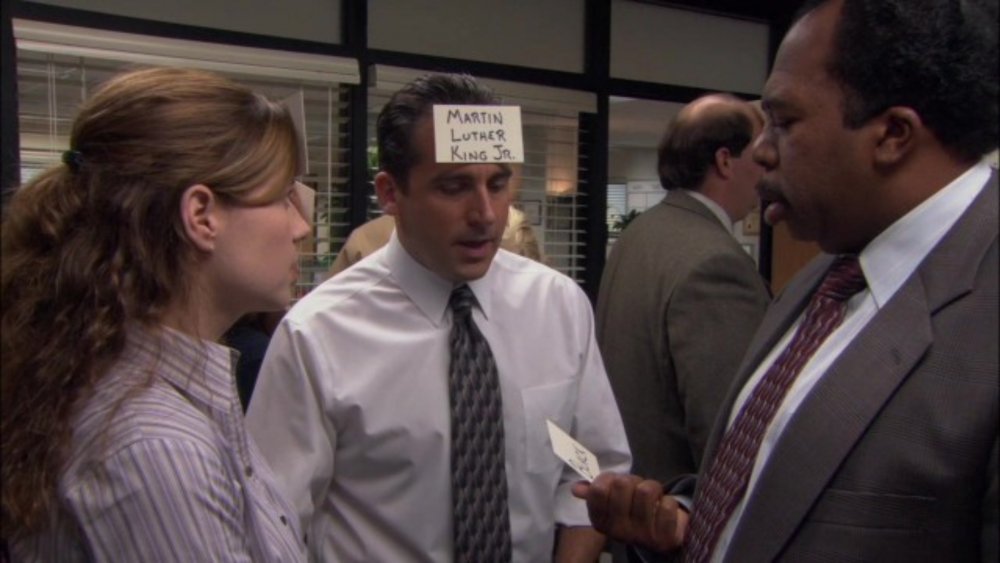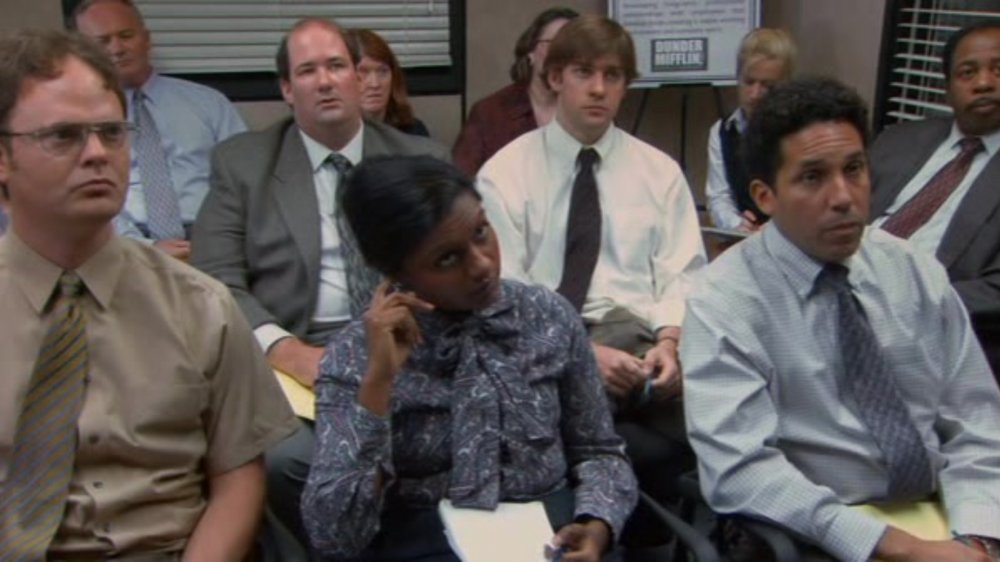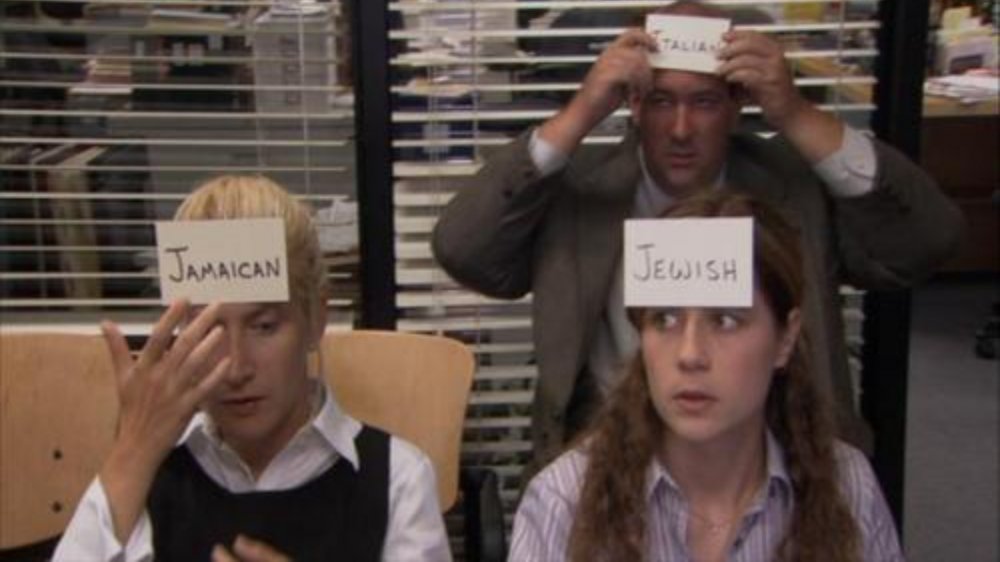The Classic Episode Of The Office That Wouldn't Go Over Well Today
The Office is an undisputed classic of the American sitcom form. However, it's also a product of its time, and as a result there are certain episodes that wouldn't fly today. The number one episode that would be unlikely to be made in the modern television landscape is the squirm-inducing season 1 installment "Diversity Day." As the second episode of the series, "Diversity Day" introduces the Dunder Mifflin employees and the broader concepts of the show by locking all of the characters into the conference room for Michael Scott's (Steve Carell) version of a sensitivity training exercise after his Chris Rock impersonation lands him in trouble with corporate. Since this is Michael we're talking about, it doesn't take long for things to get uncomfortable.
In true Michael fashion, he attempts to turn sensitivity training into what he imagines will be a fun day for his employees. This involves having them tape cards featuring different races and nationalities on their foreheads, while they use racial and cultural stereotypes to describe each other's cards. By the time the episode ends, Michael has earned a well-deserved slap from Kelly (Mindy Kaling), and facilitated a day of pure toxicity in the workplace. It's surprising that the episode aired on NBC in 2005, and given the much needed focus on racial and cultural sensitivity in media today, it's inconceivable that the episode would be made now.
Even Larry Wilmore, who was a producer on The Office in season 1 and guest-starred in the infamous episode, agrees. In August 2020, he told The Wrap, "There is no way ... 'Diversity Day' could be produced today, and probably rightly so."
The Office's 'Diversity Day' was designed to push the show's comedy to its absolute limit
Watching Michael deliver his Chris Rock routine censored only by the bleeps of the documentary team is shocking all on its own, but the fact that the episode only gets more uncomfortable from there is what really makes it hard to watch. From Michael ignoring his employees' obvious discomfort at being asked to stereotype different races and cultures to the relentless barrage of Indian stereotypes he hurls at an unsuspecting Kelly, it's unlikely Michael would be allowed to keep his job after being so blatantly racist and cruel. However, from the perspective of The Office writers and cast, "Diversity Day" was about differentiating the series from its U.K. counterpart. On that level, the episode was a success.
In a 2015 interview with Uproxx, The Office writer and producer Michael Schur discussed how the episode immediately set the American version of the show apart from its predecessor and established the character of Michael. "It was completely and utterly different from any of the British Office episodes that had aired, which I think was really important," he said. "The pilot of the American Office skewed pretty closely to the British Office. But I remember thinking it was a really good idea to have the second episode just be a completely different story."
Despite not aging well, 'Diversity Day' marks the arrival of the American Office
Seen through a 2020 lens, "Diversity Day" is overflowing with moments that are unnecessarily tone deaf. There's Dwight (Rainn Wilson) declaring which races he's attracted to, Michael suggesting to Oscar (Oscar Nuñez) that the term Mexican is inherently negative, and Michael performing Rock's routine. The episode makes it clear that Michael is completely in the wrong, and there's some weighty satire there about the corporate response to addressing diversity issues, but well-intentioned or not, it's not an episode that fits within the current cultural environment.
That being said, "Diversity Day" is the episode that truly introduced the American Office to the world, thanks to the way it discussed race and the discomfort the subject caused the characters. Unlike the pilot episode, which was basically a straight remake of the U.K. Office, the second episode of the series establishes the tone of the show going forward. "It's not my favorite of all-time, but it's certainly very important because it was really funny and a little bit edgy in terms of dealing with race and racial politics in the workplace. And it was a really important thing for the show to break away from the British show so early in its run," Schur said to Uproxx.
"Diversity Day" isn't an episode of television that would get made today, but as Schur points out, as the second episode of The Office, it remains the episode that marked the arrival of the American Office — and it established early on just how cringe-inducing the show was willing to get.


